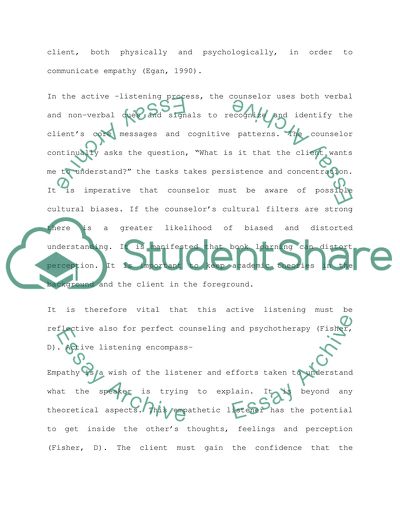Cite this document
(“Active listening in counseling Essay Example | Topics and Well Written Essays - 2500 words”, n.d.)
Retrieved from https://studentshare.org/law/1512108-active-listening-in-counseling
Retrieved from https://studentshare.org/law/1512108-active-listening-in-counseling
(Active Listening in Counseling Essay Example | Topics and Well Written Essays - 2500 Words)
https://studentshare.org/law/1512108-active-listening-in-counseling.
https://studentshare.org/law/1512108-active-listening-in-counseling.
“Active Listening in Counseling Essay Example | Topics and Well Written Essays - 2500 Words”, n.d. https://studentshare.org/law/1512108-active-listening-in-counseling.


